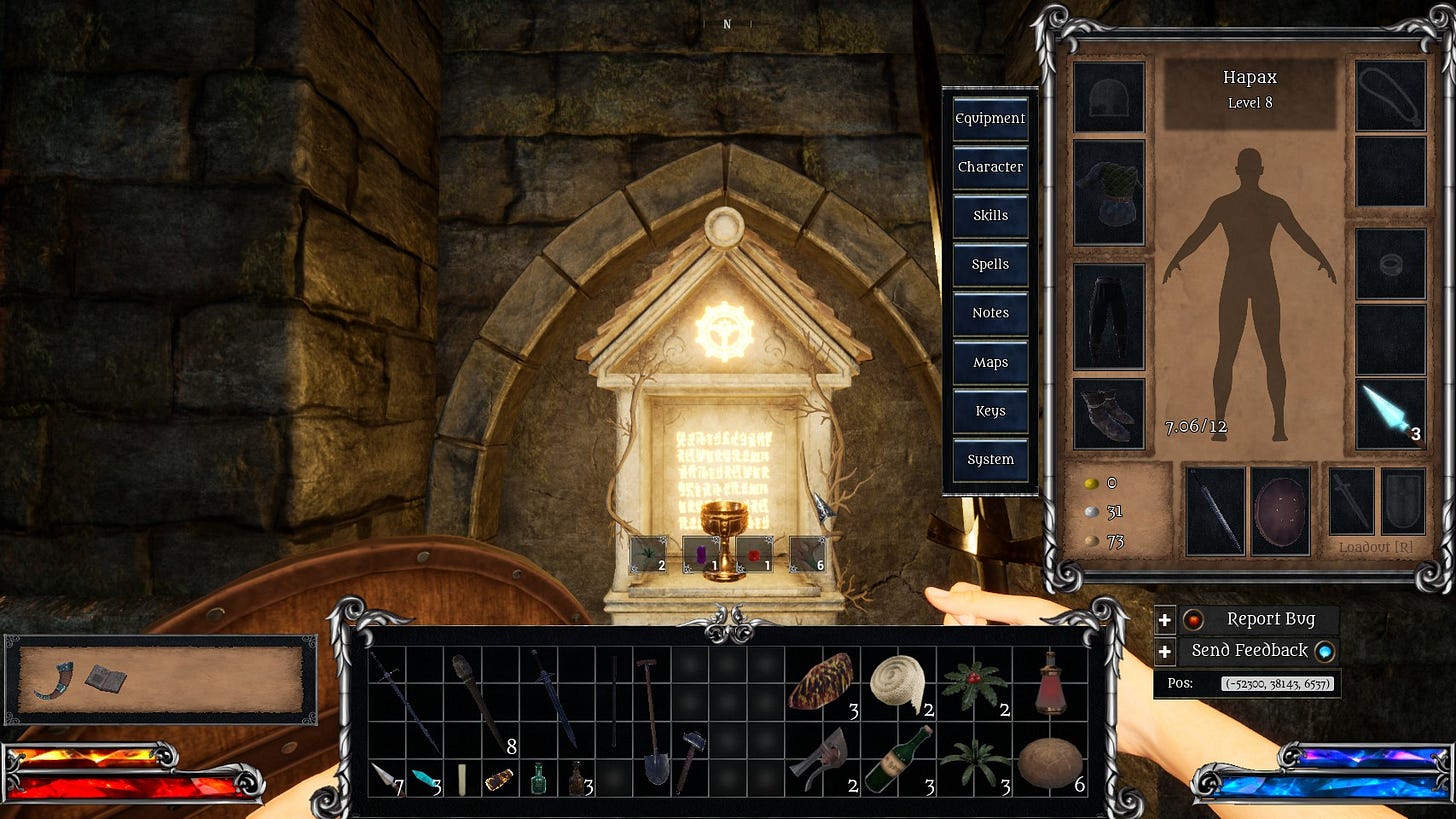Monomyth — Subterranean Blues
Preview
I count myself lucky to have been following the development of Monomyth since 2018, when I first interviewed the developer, Michael Tröls, for TechRaptor. Six years later, after a successful Kickstarter campaign, the game continues to become more impressive with each new update and feature, often shared and detailed on the Kickstarter updates page and the official X account. The current demo is available on Steam as part of the Next Fest February.
The original demo attached to the Kickstarter campaign in 2021 was quite solid, and I’ve been looking forward to a new demo for the past couple of years. I wasn’t expecting the current build to be as robust and immersive as I found it; the progress is noticeable. Rat Tower will continue to improve and build towards a polished final product. This might just be a true descendant of Ultima Underworld, King’s Field, and Arx Fatalis, with a dialogue system similar to Morrowind.
The Player’s Journey
Monomyth features a checkpoint system for Souls-like resurrection at shrines, but it also allows you to save and load at just about any time in the demo. That changes the dynamics of difficulty, unless you avoid saving often. I find it hard not to do it because I don’t like to waste my limited gaming time on backtracking after dying. Instead of imposing a checkpoint system, Monomyth gives players freedom to play as they will. And whatever they choose, there is another layer of challenge.
This is what we call no handholding. Classic dungeon crawler games and immersive sims have always been hands-off rather than on-rails. That is the point of the design: linear, on-rails games are for sheep, it seems to imply. This school of game design is built on trust and respect for the player’s intelligence, letting them find their way to play through. Monomyth, like System Shock, is built on that trust and respect.
The Choiceful One
In a collapsing surface world, the player character sets out to find his brother in Lysandria, an underground fortress. It’s a good break from fantasy RPGs where you play as a variety of The Chosen One, which is the bane of fantasy storytelling. There is more value in playing characters who are not necessarily special, but who find themselves in a place where they can make their own choices.
This may be why the story and lore take more after The Dark Eye than the stories in those three underground games mentioned earlier. What started as an alternative to D&D in Germany became its own unique fantasy world. Monomyth aims to build on the possibilities of fantasy unbound by intellectual property, and instead sees in players the drive to create value and tell their own stories in the game.
The Waiting
All things considered, the checkpoint system is probably more immersive to play, but you can choose to quicksave and quickload as you will. The challenge comes from exploring the dungeons, caves, and buildings, finding what you are looking for, and connecting the dots. There is even a diegetic number system you have to understand in order to advance in the levels. This is not as hard as it sounds, but it’s not easy.
The soundtrack and general aesthetic feel closer to King’s Field, which I have never completed, though I have it set up on my Steam Deck. King’s Field came only two years after Ultima Underworld, which was possibly the most innovative and influential dungeon crawler in the early 90s, and later influenced Arx Fatalis. Monomyth builds on the legacy of these games in an elegant and respectful way.
I’ve been looking forward to it since the first video and screenshots showed up on Steam Greenlight, and now it seems closer than ever to release, though maybe still not as close as I hope. But there is already so much in this demo that makes up for the waiting. Rat Tower will deliver a final product that is not only solid and as bug-free as possible, but also a unique dungeon crawler that can stand the test of time.
Disclosure: Monomyth was previewed on PC with the Steam Next Fest demo. More information is available on the official developer website.





